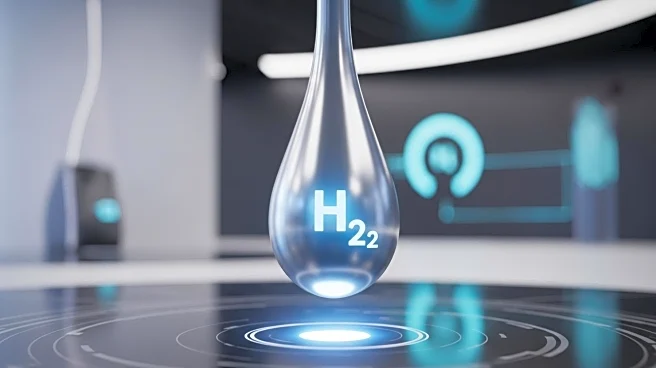What is the story about?
What's Happening?
BMW has announced plans to expand the series production of its X5 model to include five powertrain options by 2028. These options will consist of gasoline, diesel, plug-in hybrid, battery electric, and hydrogen fuel cell variants. The introduction of the iX5 Hydrogen is part of BMW's strategy to promote the development of hydrogen fuel's ecosystem and refueling infrastructure. This move is seen as a significant step towards diversifying energy sources in the automotive industry and supporting sustainable mobility solutions.
Why It's Important?
The inclusion of a hydrogen fuel cell option in BMW's lineup is crucial for advancing alternative energy solutions in the automotive sector. Hydrogen fuel cells offer a clean energy source with the potential to reduce carbon emissions significantly. By investing in hydrogen technology, BMW is contributing to the broader adoption of sustainable energy practices. This development could influence other automakers to explore hydrogen as a viable option, potentially leading to increased investment in hydrogen infrastructure and technology.
What's Next?
BMW's decision to produce the iX5 Hydrogen by 2028 will likely prompt further advancements in hydrogen technology and infrastructure. The company may collaborate with energy providers and governments to enhance refueling networks, making hydrogen vehicles more accessible to consumers. Additionally, BMW's move could encourage other manufacturers to accelerate their hydrogen vehicle development plans, fostering competition and innovation in the industry.
Beyond the Headlines
The shift towards hydrogen fuel cells reflects a broader trend in the automotive industry towards sustainability and reducing reliance on fossil fuels. This transition may have long-term implications for energy policies and environmental regulations, as governments and companies seek to balance economic growth with ecological responsibility.

















